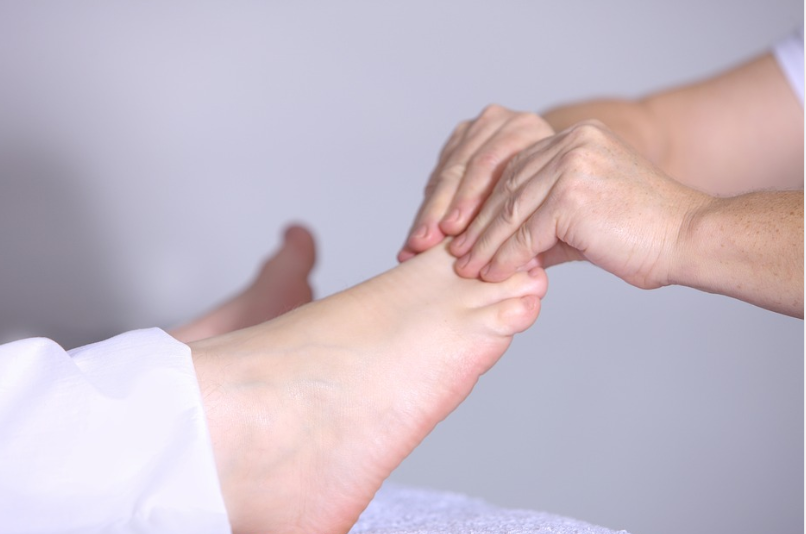Will Meditation Help With Anxiety
Discover how meditation can help you improve your concentration and reduce anxiety.

Selfpause Affirmation App
Download the app to get 1,000’s of affirmation meditations and everything you need to write, record and listen to your own.
Meditation can help you reduce anxiety and reduce stress. It can also help calm panic attacks. However, there are some important things to know before beginning a meditation practice. Meditation can help you become more aware of your feelings. You may also want to try mindfulness-based meditation. Meditation will help you improve your concentration and decrease anxiety.
Mindfulness-based meditation

The techniques used in Mindfulness-based meditation are meant to help you be aware of your current state, including your feelings, thoughts, and body sensations. When you are aware of these, you can acknowledge them and let them go. They can also help you recognize unwholesome mental states and disengage from them.
The technique can be done in a number of ways, depending on your personal preferences. You can start by focusing your attention on your breathing. Counting your breath in and out can help you calm your mind and reduce anxiety. You can also focus on sensations in your body, such as tight stomachs, clenched fists, and shoulder tension.
In addition to being a powerful technique to help you reduce anxiety, it has also shown positive effects on mood disorders. Researchers from Johns Hopkins University have analyzed nearly 19,000 studies on the benefits of meditation. They found 47 trials with results that were consistent with each other and met the criteria for well-designed studies.
Mindfulness-based meditation can help you learn how to regulate your emotions, which is important if you want to cope with anxiety and panic attacks. A recent study showed that college students who practiced mindfulness-based meditation had less anxiety than college students who did not. Just five to twelve minutes of guided meditation each day was enough to get results.
Many people find mindfulness-based meditation to be beneficial in dealing with stressful situations. It can also help with depression. It may even improve the quality of life in people with chronic medical conditions. There are many programs available in your area that offer MBSR classes. You can find one near you by searching online.
Mindfulness-based cognitive therapy

The scientific basis for mindfulness is not completely understood, but it is thought that meditation can help reduce anxiety and stress. The concept of mindfulness is rooted in Buddhist traditions and has spread throughout the Western world. Currently, mindfulness interventions are being studied in clinical settings, including in the United States Department of Veterans Affairs.
In a typical therapy session, the therapist will guide clients through meditations, breath work, and cognitive work. These techniques can be applied outside of therapy and may enhance other methods of treatment. In some cases, people who practice mindfulness can reduce their need for therapy. This may be true, but there are also instances when mindfulness alone may not be enough.
Cognitive therapy, particularly mindfulness-based cognitive therapy (MBCT), combines cognitive and meditative techniques to treat anxiety and depression. The main objective of MBCT is to break the cycle of depression and anxiety by changing the ways people view events, think, and experience their feelings. Through this, participants learn to relate more skillfully to their anxiety.
MBCT is typically delivered in a group setting, with participants meeting with a therapist or certified instructor. These groups can take different forms, including a group class or a retreat. Although the therapy does not cure everyone, it can help them change their relationship with their thoughts and live happier life.
While mindfulness-based cognitive therapy isn’t the best solution for all conditions, studies have found that it can reduce anxiety and improve emotional health. However, it can’t cure every anxiety disorder, but the benefits of mindfulness therapy are numerous. While it’s not the best remedy for every problem, mindfulness-based cognitive therapy is an increasingly promising option.
Focused attention

Focused attention may be a powerful way to help people with anxiety. Studies show that the ability to shift attention from one task to another can help people deal with anxiety. This skill is also known as attentional control. This ability is impaired in high-anxiety people, and research shows that it is harder for them to compensate for poor attentional control. The theory behind this suggests that anxiety affects attentional control by increasing the bottom-up stimulus-driven processing, which shifts attention from one task to the next. The top-down regulatory control, on the other hand, helps to inhibit automatic responses and facilitate the detection of threatening stimuli.
People with social anxiety have a tendency to hold onto situations and not move their attention when they are experiencing anxiety. The ability to move attention is critical for overcoming social anxiety, and it can be achieved by practicing flexible attention. During social situations, patients can choose to focus their attention elsewhere, such as thinking about things that are positive, instead of worrying about a negative situation. This way, their anxiety is reduced.
A study of individuals with public speaking phobia found a strong relationship between reduced self-focused attention and speech anxiety. In addition, this study indicated that interventions that target decreasing self-focused attention may be beneficial in overcoming speech anxiety. If this is the case, then it will be important to evaluate the effectiveness of these treatments.
Practicing mindfulness exercises can also help improve focused attention. Some methods involve breathing, mindful walking, and body scans. In addition to focusing on these things, mindfulness exercises will help people learn how to focus on one thing at a time. One of the most common techniques for improving attention is to focus on an object that you can easily focus on. This can be a specific object, image, or mantra. Another technique is breathing deeply and evenly. This method of breathing trains the mind to slow down and make the muscles used in the upper chest and shoulder muscles less active.
Visualization

Visualization in meditation can help with anxiety by allowing you to feel the experience of anxiety in your body. It can help you to release the tension from your body and explore the details of your anxiety. It doesn’t have to be a complex or detailed image. You can explore the different colors that soothe you or help you relax.
The practice of visualization in meditation can help those suffering from social anxiety. It can help them have fun and not be nervous during a party. It can be part of a meditation technique called compassion meditation, which promotes a good mood and helps you to reduce anxiety. This type of meditation can also help people who suffer from panic attacks.
It is important to remember that visualization is not a cure for anxiety. Instead, it is a way to relax and cope with anxiety during times of high stress. By imagining different things that would make you happy, you would feel more relaxed and able to handle the anxiety symptoms. Moreover, visualization will give you a chance to enjoy your day-to-day activities.
Visualization in meditation can help with anxiety by reliving a recent experience. To do this, you should take a few deep breaths. Then try to visualize how it would feel like if you were in that situation. Eventually, you will learn to imagine yourself feeling relaxed.
To begin visualizing, you should prepare your environment for relaxation. Ensure that you have a quiet place that is free from distractions. You should also take off heavy jewelry and restricting clothing. Then, sit or lie down in a comfortable position.
Mindfulness-based therapy

Meditation and mindfulness-based therapy for anxiety is an approach to dealing with anxiety that teaches you to become aware of the feeling of anxiety. It involves learning to relax around the anxiety feeling and to be curious about how it changes over time. To help you practice this technique, begin by noticing your current body sensations, sights, and sounds, as well as any thoughts that arise.
Research on mindfulness-based interventions has increased exponentially in the last few years. Although MBIs are popular, there is still no clear evidence of their efficacy in treating anxiety. Most studies have used waitlist-controlled trials or cross-sectional designs, which have methodological shortcomings. Consequently, more rigorous research is needed to determine the incremental value of these approaches.
There are many types of mindfulness exercises that can help you combat anxiety. It can help you focus, stay calm, and manage emotions. It can also improve your quality of life. Practicing mindfulness can also help you cope with other common problems, like depression and grief. Reducing your anxiety levels, it can help you live a happier, more fulfilled life.
Researchers have found that regular mindfulness practice can improve your physical health. It can also reduce stress and increase the immune system. People who practice mindfulness regularly report lower levels of depression and anxiety. The benefits of these therapies go far beyond reducing anxiety. These techniques can help you discover the root causes of your anxiety and help you overcome them.
When practicing mindfulness, begin by paying attention to your breath. Your breath is with you wherever you go, so it is a useful focal point for staying present. Practice inhaling and exhaling and being aware of the sensations of warmth and coolness during each breath. You should also experience the rise and fall of each breath.
Our Top FAQ's
Meditation is a practice that involves focusing the mind on a particular object, thought, or activity in order to improve attention and awareness, and reduce stress and anxiety. There are many different types of meditation, including mindfulness meditation, which involves paying attention to the present moment without judgment, and transcendental meditation, which involves repeating a mantra or word to help the mind relax and quiet.
Meditation can be used as a standalone treatment for anxiety, or it can be used in conjunction with other treatments such as therapy or medication. Some studies have found that regular meditation can help reduce anxiety symptoms and improve overall well-being. However, it is important to consult with a healthcare provider before using meditation as a treatment for anxiety, and to continue any other treatments prescribed by a healthcare provider.
There is no one-size-fits-all approach to meditation, and different types of meditation may be more effective for different people. Some types of meditation that may be particularly helpful for reducing anxiety include mindfulness meditation, loving-kindness meditation, and progressive muscle relaxation. It may be helpful to try out different types of meditation to see which one works best for reducing anxiety symptoms.
The amount of time that a person needs to meditate in order to experience a reduction in anxiety symptoms can vary depending on the person and the severity of their anxiety. Some people may experience a reduction in anxiety symptoms after just a few minutes of meditation, while others may need to practice for longer periods of time in order to see a noticeable improvement. It is important to remember that regular practice is key, so it is best to set aside a regular time each day for meditation in order to see the greatest benefits.
As with any treatment for anxiety, there are potential risks and drawbacks to using meditation. Some people may find that meditation makes their anxiety worse, or that it is difficult to stick to a regular meditation practice. It is also important to remember that meditation is not a replacement for professional medical treatment, and those with severe anxiety or other mental health conditions should consult with a healthcare provider before using meditation as a treatment.
